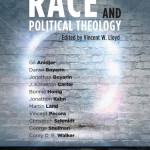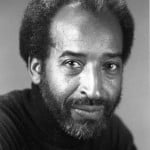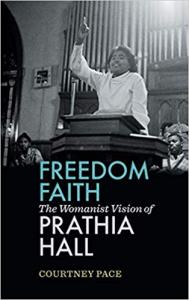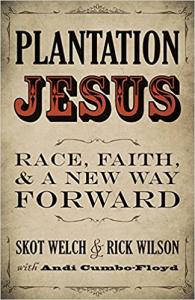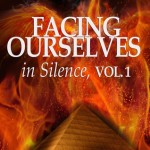R3 Founder and Managing Editor
Vincent W. Lloyd , Editor, Race and Political Theology. Stanford University Press, 2012. Pg 254 Cloth: $58.50, Paper: $20.66.
At a meeting of the American Academy of Religion, political theologian Kwok Pui Lan presented at paper titled Race Matters in Political Theology. In the paper, she lamented how scholars have erased race in many of the discussions and writing about in within the discipline of political theology. While scholars and students credit Carl Schmitt as the “father of Political Theology” because of his oft-referenced work, Political Theology, professor Lan wondered what would it mean if theologian and leader of the Three-Self Patriotic Movement in China, Wu Yaozong, would “inaugurate discussion on political theology.” She also noted that even to ask that question would “contest the Eurocentric trajectory of political theology and a notion of race constructed primarily out of the western experience.”
Outside of works within religious studies that focus on theology — namely James Deotis Roberts’ Black Political Theology, and the works of James Cone, many of the scholarship within the discipline, as professor Lan notes, does not concern itself with race at all. It is as if race itself does not shape how we view both politics and religion.
To put race into the political theology discussion is what Vincent Lloyd and his contributors attempt to do in Race and Political Theology. As Lloyd notes in the introduction of his work, “conversations about political theology might be complicated and thickened when race is taken into account” (4). Thus, while there has been an increase of interest in the field of political theology, much of the work has not focused on race.
The nine chapters, along with the introduction, invites the reader to see how political theology would look if race was part of the discussion. Drawing from work of historical figures such as Otto Brunner, WEB Du Bois, Wilhelm Staple and others, editor Vincent W. Lloyd and senior scholars in both religion and political science, seek to reexamine how scholars see and do political theology. They help us to think differently about religion and politics by factoring race into the discussion.
In the first chapter of the book—Political Theology and the Case of Otto Brummer, Vincent Pecora compares the father of political theology, Carl Schmitt, with political historian Otto Brummer. In the chapter, Pecora notes that while Schmitt insists on the “force of secularized religions (Roman Catholic) structures of thought as the intractable bases of sovereign decisions and divine law,” Brummer “radically collapses the secularizing distinction between religious moral background and rationalized civil politics” (23). In the second chapter—The Politicization of Heaven: Wilhelm Stapel’s Political Theology and Nationalist Sovereignty, Christoph Schmidt offers a case for limitations of secular liberalism. In his examination of Wilhelm Stapel, Schmitt pursues “his transformation of theology through politics to biology” (56).
The next two chapters focus on the work of W.E.B. Du Bois. In chapter three—Between W.E.B. Du Bois and Karl Barth: The Problem of Modern Political Theology, J Cameron Carter draws from the work of Karl Barth to demonstrate that Du Bois and Barth may have both shared the same political theological instincts. In chapter four—There are no Clean Souls: The Promise and Perils of Political Theology, Jonathon Kahn explores Du Bois as a pragmatist and analyzes what it would mean for a pragmatist to have a political theology.
In chapter five—The Race for Theology: Toward a Critical Political Theology of Freedom, Corey D.B. Walker explores what it means for people who signify as “black” to engage and think in public by examining the work of Howard Thurman. In the chapter, he argues, “to return to the black as a site of thinking fundamentally reconstructs the project of thought in general and theology in particular” (137). Gil Anijar (The Enemy’s Two Bodies (Politcal Theology Too) and Daniel Boyarin (The Double Mark of the Male Muslim: Eracing Othello), in chapters six and seven examine the “political Shakespeare” with examinations of Othello.
In the next two essays, the topic is the examination of the Jew in postmodern times. In chapter eight, Bonnie Honing (Between Sacred and Secular: Michael Walzer’s Exodus Story) examines what a model of justice grounded in a theological paradigm would look, while in chapter nine, Martin Land and Johnathan Boyarin (The State Between Race and Religion: A Conversation) explore the meaning of the ethnic and religious Jew. Finally, George Shulman, in the book’s final chapter—From Political Theology to Vernacular Prophecy: Rethinking Redemption, grounds his political theology within an American landscape that allows him to examine prophetic rhetoric as a site of understanding political theology.
This work however only cracks the door of examining how race shapes political theology. While focusing in on Jewish and African American contributions, this book give space for scholars to examine other traditions, peoples and cultures that engage in political theological discourse. What the book does is open up avenues for scholars to examine people who other have not traditionally seen as being part of the political discourse. The book starts a much needed discussion of how would an inclusive political theology work that would benefit all of humankind.
Donate to the Work of R3
Like the work we do at Rhetoric Race and Religion? Please consider helping us continue to do this work. All donations are tax-deductible through Gifts of Life Ministries/G’Life Outreach, a 501(c)(3) tax exempt organization, and our fiscal sponsor. Any donation helps. Just click here to support our work.

